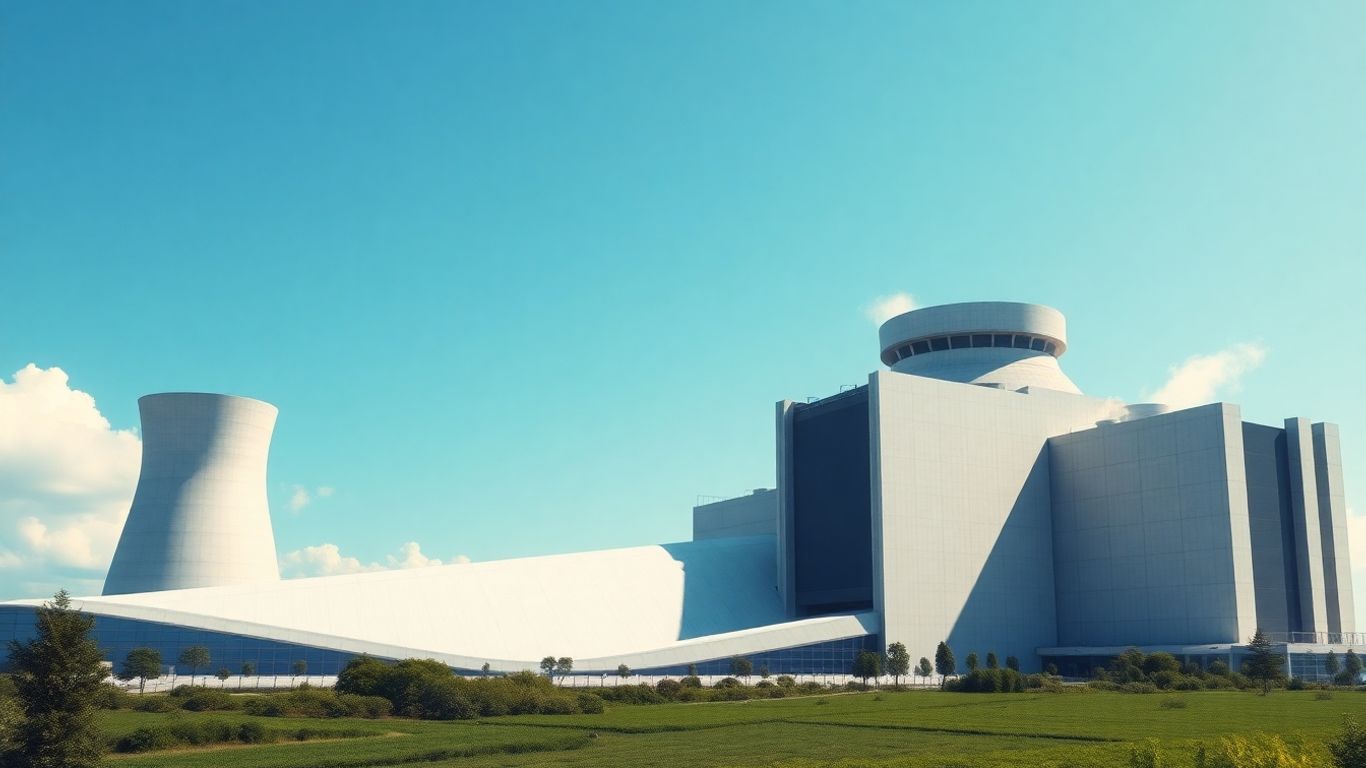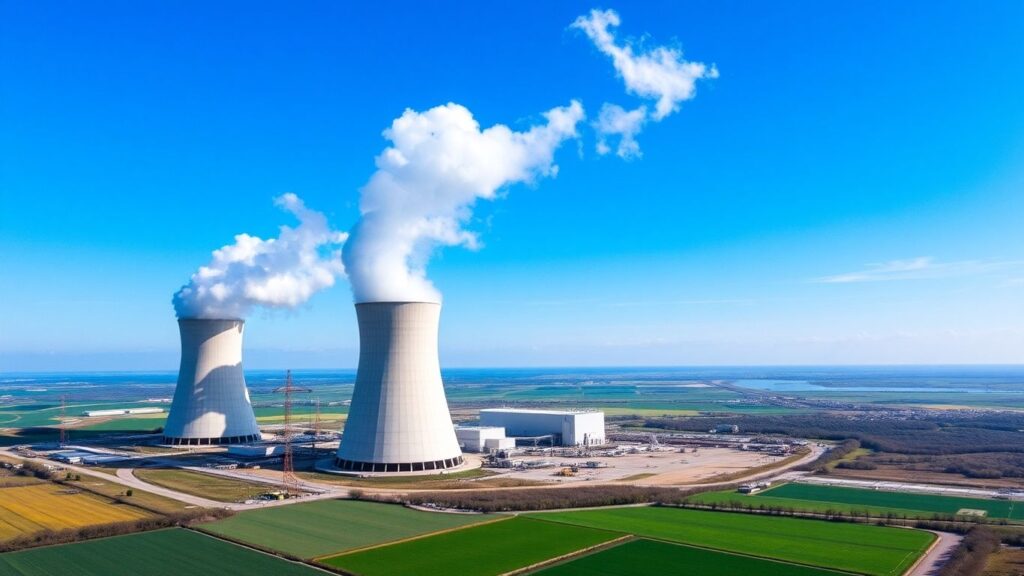The Tennessee Valley Authority (TVA) has submitted a construction permit application to the U.S. Nuclear Regulatory Commission (NRC) for one of the nation’s first Small Modular Reactors (SMRs). This move, centered at TVA’s Clinch River site near Oak Ridge, Tennessee, marks a significant milestone in the advancement of nuclear energy in the United States and could pave the way for wider SMR adoption.
Key Takeaways
- TVA is the first U.S. utility to apply for a construction permit for an SMR.
- The proposed reactor utilizes GE Vernova Hitachi’s BWRX-300 design.
- The project could see preliminary site work begin as early as next year, with potential operation by late 2032.
- SMRs offer advantages like improved safety, efficiency, and a smaller environmental footprint compared to traditional reactors.
A Milestone Application
The Tennessee Valley Authority (TVA) has officially become the first utility in the United States to seek a permit to build a small modular reactor (SMR). The comprehensive 4,500-page application was submitted to the U.S. Nuclear Regulatory Commission (NRC) for review, targeting the construction of a GE Hitachi BWRX-300 reactor at TVA’s Clinch River site, located near Oak Ridge, Tennessee. This application signifies a crucial step in bringing the nation’s first utility-led SMR online.
The BWRX-300 Technology
The BWRX-300 is a 300-megawatt-electric advanced light water reactor, described as a smaller and more simplified version of GE Vernova Hitachi’s established Economic Simplified Boiling Water Reactor. Its design leverages existing supply chains and proven components, aiming to accelerate deployment. Notably, it is the only boiling water SMR design currently under development in the United States. TVA has also joined a global collaboration with Ontario Power Generation to expedite the development of this SMR technology for both the U.S. and Canada.
Potential Benefits and Timeline
Small modular reactors are designed to be more efficient, safer, and have a smaller carbon footprint than traditional nuclear plants. Their modular construction, akin to assembling building blocks, allows for greater flexibility in siting, as they can be deployed in locations not suitable for larger reactors. Unlike conventional plants that may require a 10-mile evacuation zone, SMRs typically have a site boundary as their exclusion zone, minimizing impact on surrounding communities. TVA anticipates that preliminary site preparation could commence as early as next year, while the NRC conducts its review. Commercial operation is tentatively projected for late 2032.
Industry and Regulatory Outlook
TVA’s initiative is seen as a potential pathfinder for other utilities interested in deploying SMR technology. The utility has already secured the nation’s first early site permit for an SMR, with support from the U.S. Department of Energy, having cleared the environmental review process. While the NRC’s review is a critical next step, there are discussions about expedited approval timelines, with some suggesting a permit could be granted by December 2026. However, concerns have been raised by critics regarding the potential for political pressure to compromise safety during expedited reviews.
Economic and Future Implications
Big tech companies are reportedly showing significant interest in SMRs as a power source for energy-intensive processes like AI. TVA views this project as an investment in local communities, creating skilled jobs during both construction and operation. The success of this project could also bolster the export of American-made nuclear technology globally. While cost estimates are still being finalized, TVA is seeking partners to help manage the initial investment, which is expected to be in a similar range to projects like the one in Ontario, Canada, where four BWRX-300 reactors are slated for construction with commercial operation expected by the end of 2029.
### Sources
- NRC Dockets Construction Permit Application for TVA Small Modular Reactor, Department of Energy (.gov).
- TVA’s Progress Towards Small Modular Reactor | Local News, Local 3 News.
- For the first time, a U.S. utility seeks permit to build small modular reactor, Power Engineering.












